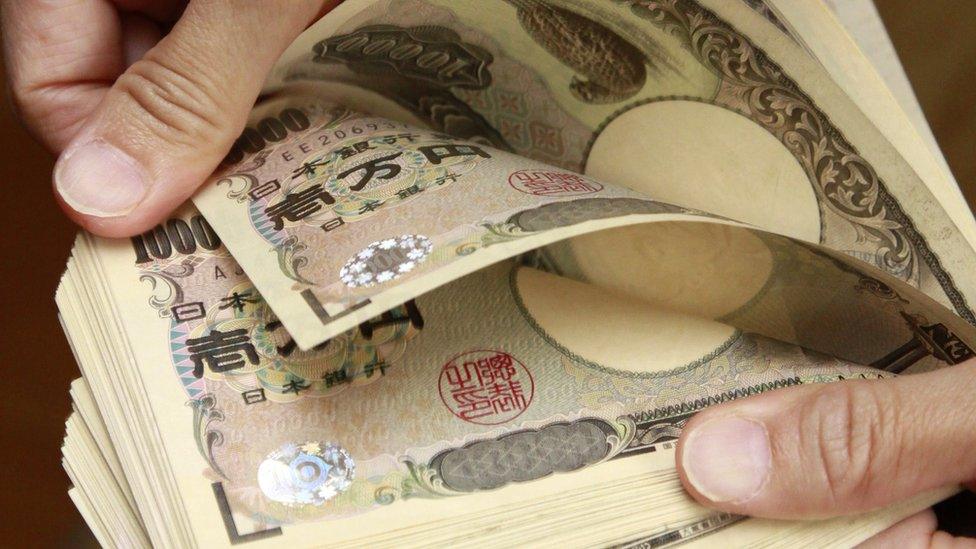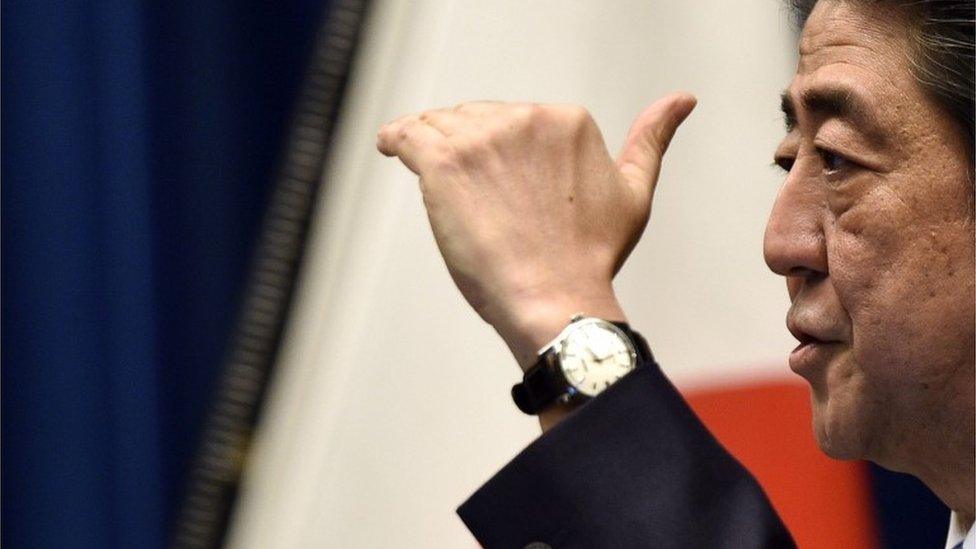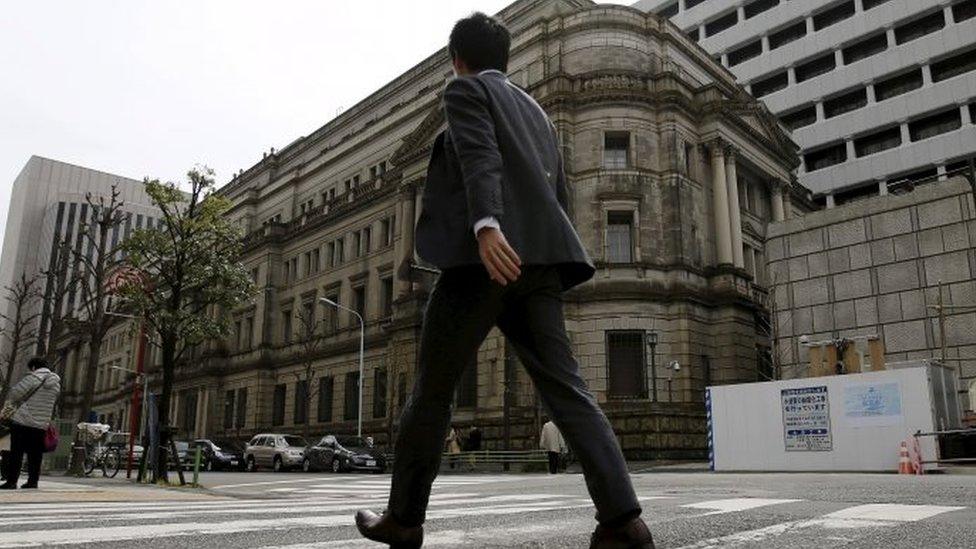Japan's cabinet approves stimulus package
- Published

Japan's cabinet has approved an economic stimulus package worth more than 28 trillion yen ($275bn; £207bn).
It is the latest attempt by Prime Minister Shinzo Abe to kick-start the world's third-largest economy and boost growth.
The package includes 7.5tn yen in new spending for the national and local governments over the next two years.
More than half of that sum has been earmarked for the current fiscal year.
Chief Cabinet Secretary Yoshihide Suga said the stimulus package would be included in a supplementary budget, which will be considered by an extraordinary session of parliament starting in September.

Mr Abe had previously signalled a new stimulus package might be needed
The government expects the measures to boost gross domestic product by 1.3%, but economists have expressed disappointment.
"This package is very much in line with reports over the past few days and has not done much to improve sentiment," said Lee Jin-Yang, macro research analyst at Aberdeen Asset Management.
The programme includes spending on infrastructure projects and the reconstruction of disaster zones, including parts of north-eastern Japan which were devastated by an earthquake and tsunami in 2011.
Part of the funds will also be used to improve wages for child and elder care workers, and provide support for small-scale companies and low income families.
However, Takuji Okubo, chief economist at Japan Macro Advisors in Tokyo, said the stimulus would "have a very short-term effect".
"In terms of contents of the stimulus, old-fashioned public works tend to dominate. Overall, the stimulus packages smack of another disappointing misfiring of Abenomics," he added.
The latest government stimulus comes just days after the Bank of Japan eased monetary policy slightly and announced a plan to review its monetary stimulus programme in September.
That raised expectations for so-called "helicopter money", printing money to pay for government debt.
"While the method of financing is not clear yet, such cooperation between government and central bank is likely to be more frequent in Japan, and potentially elsewhere in the world," said Aberdeen Asset Management's Mr Lee.
"While helicopter money is a concept still frowned upon thus far, such coordination does make the first step in blurring the line as central banks run out of stimulus measures."
- Published29 July 2016

- Published27 July 2016